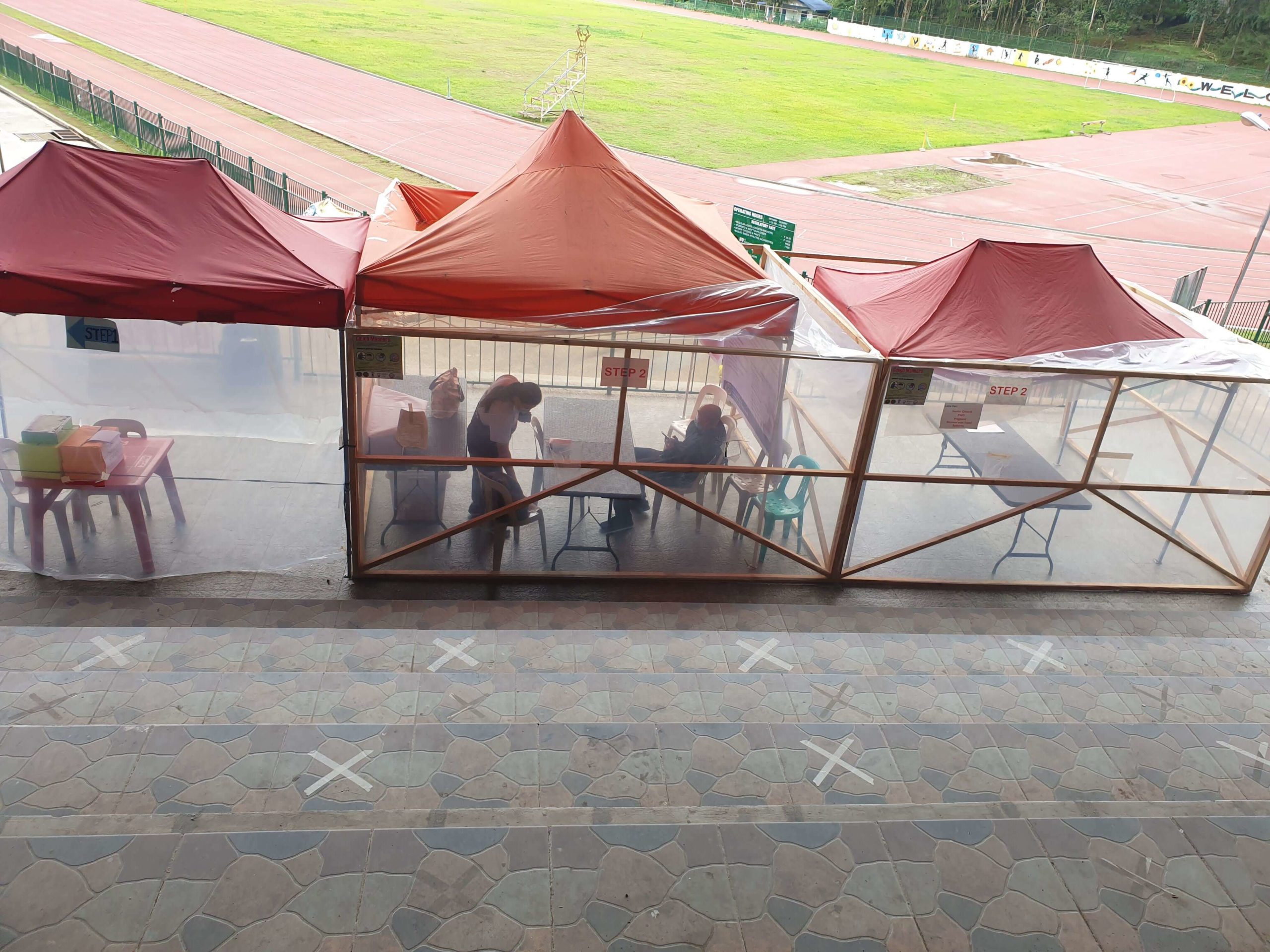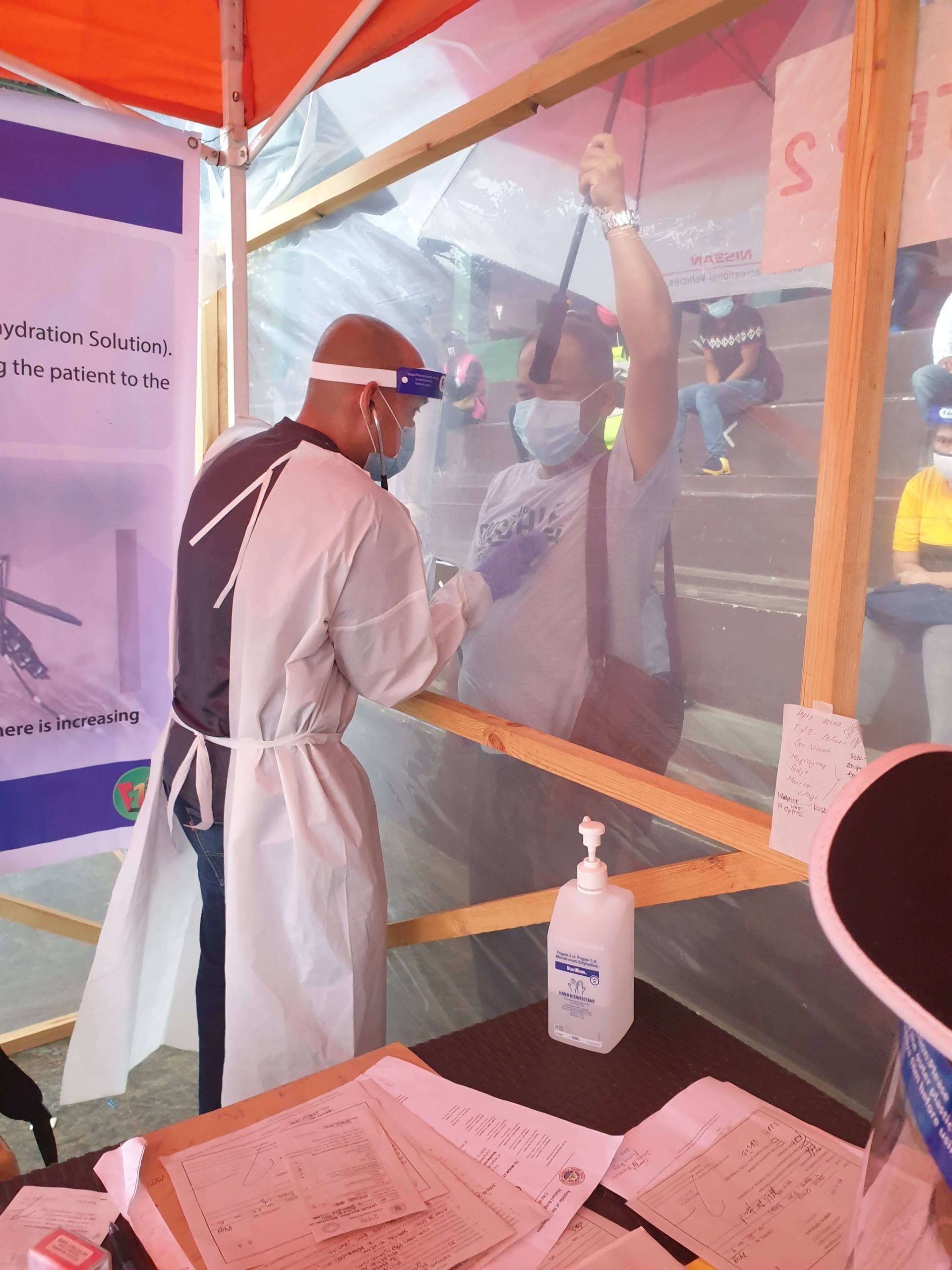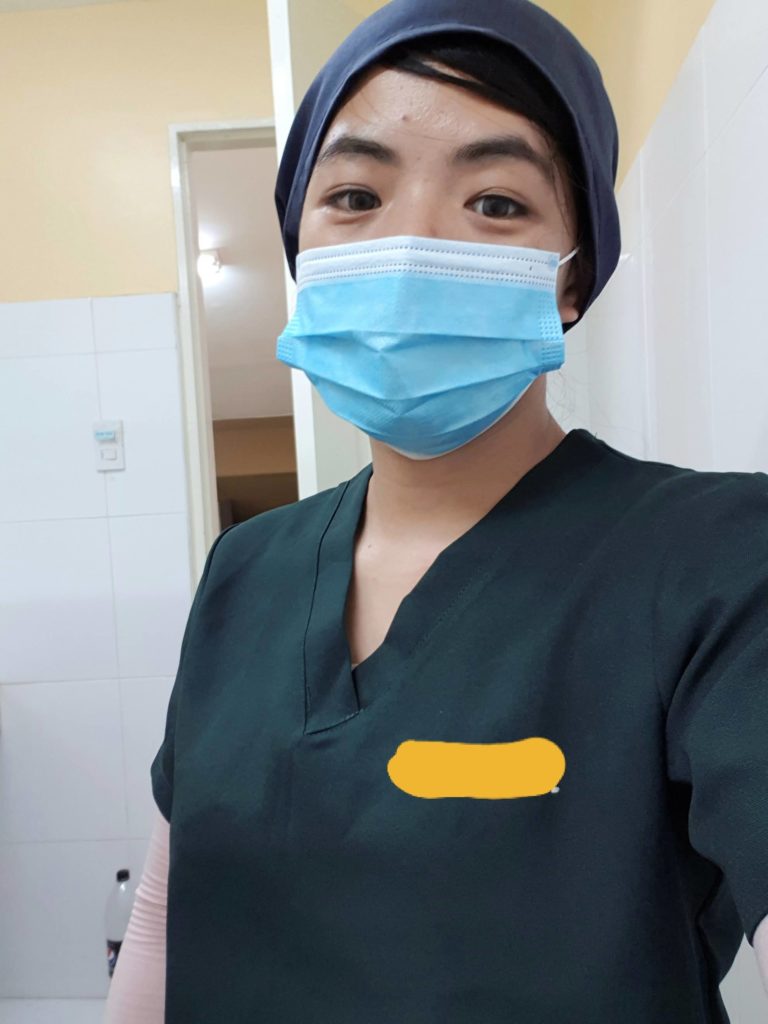Excerpt from July 28, 2020 entry.
It was three days ago when I posted in my timeline an open letter for the citizenry of Baguio. It was my sentiment about how low people see the value of medical certificates that we issue. It was an appeal for the citizens to put aside a little of their concern and to think of how difficult it is to be in our shoes. It was a request for Baguio to listen and to participate in the fight against COVID.
However, I deleted the post after some of my friends started sharing. It was an open letter in the first place. But then I realized that I am not ready to be vulnerable to people who don’t know me personally. Being a writer though, I always come back to journaling, especially after another breakdown. And this time around, I want this writing to reach more people in the hope of encouraging.
To give a bit of background, I am a job contractor working as a public health assistant. I am a nurse by profession and currently deployed in the medical triage for outbound travelers. And this is a glimpse of what a frontliner goes through during this time of the pandemic.
I go home tired and disappointed with myself
When I finally get to go home after a tiring duty, I have a bit of time to sit down and think. In these moments, I tell myself to let go. At other times, I want to beat myself for giving too much of myself in this fight. I remind myself that the people are not my enemy and that I am not their enemy.
But when you are on the frontline, you no longer see the people for who they are. We are blind to position, education, and various petitions. When we are on duty, we only see symptoms, travel history, and the places of destinations.
And this pains me every time. Where did our value of altruism and humanitarian considerations go? Where is our Christian teaching to become kind and generous? And how do we become a better version of ourselves when we have to be on the defensive as a call of our duty?

The Medical Triage Desk after a long day
We can no longer be kind and considerate because children are locked up in their homes. We can’t be lenient because the retirement of the elders has been reduced to their homes. We can’t be generous because breadwinners have lost their means of income. We can’t tolerate everything because people die of COVID.
This is probably how soldiers feel during the war. You no longer see the faces of the enemy because the only thing you see in your mind is the faces of your children, your family, and the country you are fighting for.

Dr. Joseph M.
A client this afternoon told us that we are lucky that we have a job at this time of the pandemic. And it is true. But it’s also unfavorable that we lose ourselves during the process. It is demotivating that we risk ourselves and our family. It is toiling that we focused daily on scrutinizing so our city can be safe for our family and your family.
In the silence of my home, I tell myself “enough nurse, when will you let go”? Because the truth is, we constantly have to defend our health protocol against the very reason why it was created in the first place. I want to be kind too and not disappoint anyone. I am bone tired of reminding every single one of our policies.
And when you served more than 300 people in a day and you have been trying to be patient the best you can, it weakens your resolve and you become conflicted. Empathy gets in the way of implementing the guidelines. And when clients become too insistent, I become the “ugly” that I’ve been trying hard to avoid all day.
And then I would go home with a broken heart because of an incident of losing my temper.
How can we stop treating one another like enemies?
This is my final appeal to the people we serve. During this time of the pandemic, what we badly needed is not a vaccine but compassion. May you have compassion for your health workers and frontliners. We don’t ask for recognition or the hero status, we only asked for your compassion.
May you be willing to listen to us and to excuse us when emotion gets in our way when serving you. May compassion become your motivation to go through the stringent and difficult processes installed in the City right now. May compassion become your strength to endure some more.

Post duty selfie
As for myself, I ask forgiveness to the Lord. I ask that may clients find it in their hearts to forgive me for being hard on them. I apologize today for every person affected by the guidelines we try so hard to implement. I apologize to those who have been disappointed or angered by my actions or words.
But the truth is, forgiving myself is the hardest. And so today, I tell myself to let go a bit.
For my fellow public health workers and frontliners who find themselves crying or tired when they go home, let me remind you of the following:
– Let go on being too hard on yourself. It is not your fight alone. We can only do so much and influence so little. But know that your work and your influence is enough.
– Forgive yourself when you disappoint others. You are in the right place and more people appreciate the labor you put in this cause.
– Forgive others. Frustration is normal and not intentional. Garbage is meant to be thrown but no one should bring home the garbage of others.
– You are kind. But you are not perfect. Everybody can get caught with emotion especially when you give your best. Pat your shoulders instead because you give your best and show up every day.
– Above all, pray that God will fill your heart and your mind with love that nothing can break His purpose for you during this time of hardship. As it is said:
1 Peter 4:7-10
The end of all things is at hand; therefore, be self-controlled and sober-minded for the sake of your prayers.Above all, keep loving one another earnestly, since love covers a multitude of sins. Show hospitality to one another without grumbling. As each has received a gift, use it to serve one another, as good stewards of God’s varied grace.
I know it is always easier said than done, and it is the very reason I chose to become vulnerable in this post. To show that we are all affected during this time. And so, allow me to wish everyone “kasiyana” in my best Cordillerian vernacular.
